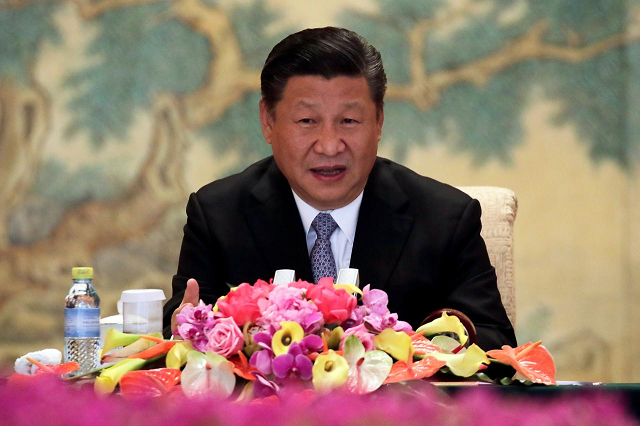
President Xi Jinping’s on-going crackdown against deep-rooted corruption, begun six years ago when he took office, has shaken up the party, with Xi warning, like other leaders before him, that the party’s very survival is at stake.
China says lifting term limits is about protecting authority of party
Xi has accrued more power than any of his immediate predecessors and has intensified efforts to ensure cadres are loyal, disciplined, upright and honest.
The updated discipline rules, released late on Sunday by the graft watchdog the Central Commission for Discipline Inspection but in effect from Aug. 18, put into written form many orders that are in practice already in effect.
In the most serious cases where a law has been broken, party members can be prosecuted, but in many cases the most severe punishment that can be meted out is expulsion from the party.
Xi’s name has also been written into the revised rules, as it is already in the party and country’s constitution, putting him at the very center of party life.
Party members are not allowed to speak out against central party policies or decisions, and nor can they spread “political rumors or damage the party’s unity”, the new rules say.
“Party members and officials must correctly exercise the power granted them by the people, be clean and upright, and oppose any abuse of power or behavior that seeks personal benefit,” one new clause says.
Another new clause takes aim at party members who are also religious. While the country’s constitution guarantees freedom of religion the party is officially atheist and party members are supposed to be too.
“Party members who have religious belief should have strengthened thought education. If they still don’t change after help and education from the party organization, they should be encouraged to leave the party,” the new rules say.
Those who attend “activities that use religion for incitement” will be expelled, according to the rules.
Analysts highlight China’s desire to maintain open global economy
Another new clause calls for punishment who “distort” the history of the country, rather than just party or military history as before.
History is a sensitive subject in China as so much of the party’s legitimacy rests on its position as claiming great historical achievements, such as leading China to victory over Japan before and during World War Two.






1732881519-0/Express-Tribune-(6)1732881519-0-270x192.webp)
1732874090-0/BeFunk_§_]__§-(1)1732874090-0.jpg)

1732865927-0/Untitled-design-(74)1732865927-0-270x192.webp)







COMMENTS
Comments are moderated and generally will be posted if they are on-topic and not abusive.
For more information, please see our Comments FAQ